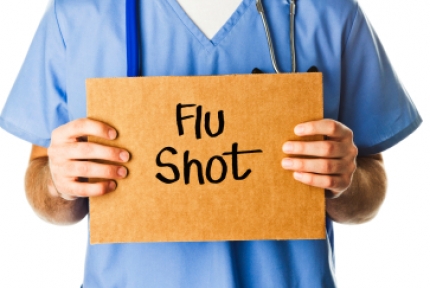Flu Season is Just Around the Corner. Are You Prepared?
Our Kitchener urgent care Summer’s coming to an end, and you know what that means: crisp Autumn afternoons, pumpkin spiced lattes, and increased incidences of influenza.
Kitchener Flu Shot Clinic
Each year Canada experiences a flu outbreak, with flu season season occuring between October and May. The influenza virus(es) changes every season, so it is very important to get vaccinated every year. For example, this year, the main strain of the virus is completely different than last year, so the antibodies you acquired from last year’s vaccination may not be effective against this year’s strain. Research has shown that resistance (either via natural methods or vaccination) to influenza decreases each year, further supporting yearly vaccinations.
Here’s what you need to know about the flu and how to prepare for the upcoming 2015-2016 flu season at our Kitchener urgent care clinic:
What is Influenza?
Influenza is a common viral infection. Typically, the virus is short-term and can be self-diagnosed and self-treated. Influenza is highly contagious, so it spreads easily.
How Can I Prepare for Flu Season
Each year, it’s recommends that all individuals over the age of six months receive a flu vaccine, available at your local urgent care clinic. Ideally, you should get the vaccine before October, when flu season is said to begin.
As part of your preventative measures, the CDC recommends engaging in healthy actions, such as keeping away from sick people and washing your hands frequently.
What are symptoms of the flu?
Symptoms of influenza include but are not limited to fever, coughs, congestion, fatigue, soreness and headaches.
What if I get the flu?
In most cases, having the flu is common and with proper rest and treatment, symptoms should abate within days. If you feel flu-like symptoms, contact your doctor or our Kitchener urgent care clinic.
At your appointment, your doctor will usually prescribe you antiviral prescription drugs to treat your illness. For high-risk individuals, such as children under the age of two, adults over 65, pregnant women and already sick individuals, anti-viral drugs are an absolute must.
Along with prescription medication, bed rest and an adequate consumption of fluids is essential to a speedy recovery.
Don’t let this flu season make you feel under the weather. For more information, visit the CDC’s website or contact your local urgent care clinic.
Flu season is just around the corner: It typically begins in October or November, peaks in January or February and can continue through May. Given that it takes about two weeks for the vaccination to build the antibodies necessary for protection, what better time than now to get vaccinated?
Certain populations of people are more susceptible to the flu and should be sure to obtain a vaccination each and every year. On the other hand, there are some groups who should not receive a vaccination.
Keep in mind that an influenza infection affects everyone differently; for one person it could just be a fever and achy body, bur for another, it could mean hospitalization or even death. As a general rule, anyone over 6 months of age should get vaccinated.
If you have certain medical conditions (e.g. asthma, lung disease, diabetes), are pregnant, are 65 years or older or live with/care for others who are at a high risk of contracting influenza, you should especially get an influenza vaccination.
If, however, you are allergic to eggs, have had a severe reaction to a previous influenza vaccination, are younger than 6 months, have a history of Guillain-Barre Syndrome or currently have an illness which includes fever, you should not get vaccinated without first consulting your physician.
However, regardless of how well the vaccine corresponds with the circulating strains, it is still important to get vaccinated to help protect yourself and to prevent any flu-related complications. As always, speak with your physician before obtaining a vaccination to ensure it is a safe option for you.
